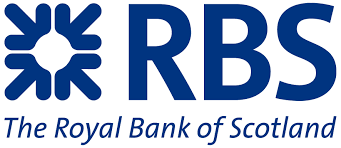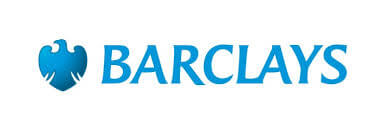Bridging Loan Interest Rates & Costs, what fees do Bridging Loans come with?
Bridging Loan Rates
Amounts are From £25k to £10m
Terms can be for 1 week to 2 years
Interest from 4% pm
Loans anywhere in the UK
Bridging Loan rates
Interest Rates From UK Lenders
80+ Lenders with over 500 Loans
Always the best deals
We offer to get you the best
Deals on Interest Rates & Deals
Guranteed Lowest Rates




Our Bridging Loan Offer
Property Types
Bridging Terms
"Zara arranged my Bridging Loan with the minimum amount of fuss and was always their to take my call great service from start to finish"
"would recommend five stars Zara pushed to get the loan over the line 100% very experienced and worked with me all the way to get completion


Gary James
Julie Livingstone




3,000+
HAPPY
CUSTOMERS
15+
YEARS OF
SERVICE
3,000+
BRIDGING
LOANS
550+
5 STAR
REVIEWS

Compare All UK Bridging Loans
Enter A Loan Amount
Get Your Rates Now!
Bridging Loan.co.uk is a trading name of Top 10 finance Ltd is authorised by The Financial Conduct Authority (FCA) no 725234 The FCA Think Carefully before securing debts against your home. Your property could be repossessed if you do not keep up repayments on your mortgage or any other debt secured on it. We are registered and comply with the Data Protection Act (1998). Registration No: Z2861884 Company registered in England number 06261373. Privacy Policy







Start Here...
Call us 24/7 0800 138 6001

Fees, Costs & Interest Rates Payable?
When taking out a bridging loan there are a number of fees and costs that you will need to take into account with Bridging loans and not just the interest rate that is agreed between you and the lender, these will include legal fees for the lenders solicitors and also the cost of a valuation for the property, because bridging loans are a Short Term Finance product very often the loan is paid back quickly and the actual interest paid on the loan becomes less than the actual fees associated with the loan so you should always look at the overall deal that is on offer and weight that up against how long you think the loan will be outstanding for, bridging loans are used when you have an urgent requirement for a loan and you are not able to get one from another source.
A Property is used to secure the loan, this is because the lender can take possession of the property if the borrower should default on the loan, because the lender has security they can often offer better interest rates than would be available to you with a personal or unsecured loan, also bridging loans can be for far more than any personal loan, personal loans tend to go up to a maximum of £30,000 whereas this is the minimum amount for a Bridging Loan with no upper limit on the amount that you can actually borrow.
The only limiting factor is the amount of equity that you have in the property you intend to offer the lender as security for the loan and also what the valuation is against the loan to value that the lender is offering. Whatever your reasons for a bridging loan be it to make a quick property purchase or to release equity it pays to compare all of the deals on offer to you and check the fees and rates carefully including any default rates a lender would charge if you cannot pay the loan back within the agreed loan term, also if they would offer an extension of time to you if you were not in a position to repay the loan on time.
What Interest Rates are payable?
The interest rates payable on a bridging are wide and varied, with so many lenders competing for their share of the market it really does pay to shop around and compare all of the rates on the market, the things that determine what rates you will be offered are outlined below.
Loan to Value
This is the biggest deciding factor that will determine what rate is on offer bridging lenders base the amount they charge in interest on the level of risk that they would associate with the loan so if for instance they are lending 50% LTV say £100,000 against a property value of £200,000 the rate on offer is going to better than say a loan at 75% which exposes the lender to far more risk, so the higher the loan to value that you are looking for the more interest you will be charged.
Charge Type
Bridging loans are non-status and available as either a first or second charge, obviously a first charge means the lender has first call, on the asset should anything go wrong and as such they have a higher level of security than any other debt that has been registered behind them, this means that a first charge loan is always going to be the cheapest when it comes to interest rates, with a second charge the lender sits behind the first charge when it comes to getting their cash back from any sale of the property, consequently a second charge bridging loan because of the greater risk associated with it is going to carry the biggest interest rates.
Property Type
The final item that will affect the rate of interest you are offered is the Type of Property you intend to offer the lender as security for the loan, the preferred type is residential which will attract the best rates, this is due to the fact that should anything go wrong a residential property is always going to sell quicker than a commercial one and will most likely be an easier sell as commercial properties often involve leases and tenants that can affect the price when it comes to selling the property, so commercial and semi-commercial are priced at the upper level when it comes to interest rates being offered on the loan.
Interest rates vary from 4-12% per month on Bridging loans but with so many factors affecting Bridging Loan Interest Rates on offer to you-you should always talk to a broker who will advise you on the best rate for your circumstances when taking into account all of the factors around your requirement.
Valuation.
Valuations fees are payable to a surveyor who will be appointed from a panel of surveyors that the lender uses to value properties that they wish to lend against, all lenders will want a valuation before making a formal offer on your loan, two types of valuation are available for a low value loan without any complications they would carry out a simple desktop which means they will check out similar properties for sale within your area and also go through sold data to see which properties have actually sold for rather than the prices being asked, for a higher value loan the lender is more likely to ask a surveyor for a more comprehensive valuation this will involve a more detailed report with a site visit and include 90 day valuations, obviously this type of valuation is more expensive.
Valuation fees tend to start at as little as £200 for the first £100,000 and then you should factor in at least £150 for each £100,000 of the valuation, note you will agree to the amount the surveyor is charging before you instruct them and it pays to ask the lender if you can have quotes from 2-3 Surveyors as their rates can vary considerably.
Legal Fees
All bridging Companies will expect you to pay their legal fees these are the fees that they will incur as a result of you taking out a bridging loan, the amount they charge you really depends on the size of the loan, solicitors work out their fees based on their indemnity insurance so a larger loan size will always attract a larger fee, for a small loan you should factor in at least £500 and on a large complicated case it could go as high as £1-2,000 or more, you will also need to make an allowance for your own solicitor to handle the loan for you, a bridging loan is normally the same cost as a mortgage so give them a call and get a quote before instructing them to act for you.
Are there any fees to pay upfront?
You should never pay anything to anyone until you have a decision in principle, what this means is that a lender has looked at your requirement and would be prepared to offer you finance subject to valuation and due diligence, once this is the case you will only be asked to pay for the valuation and put the lenders solicitors in funds once you decided to proceed with the loan, you should never pay any brokers fees upfront it is quite normal for the broker to be paid by the lender but only once the loan has completed and you have your Loan. Note you can use a bridging loan for any legal purpose.
UK Bridging Loans are one of the UK’S leading bridging loan brokers and can search all of the loans on the market to source the perfect deal for your circumstances.
Contact us now to discuss your proposal and we can assure you of the very best advice and service, call us now 0800 138 6001 or use the contact form on this page to compare loans.
Compare Lenders Interest Rates & Deals
Residentail Flats & Houses
Commercial All Types
Semi-Commercial property
Land with or without PP
Home Page Bridging Loan Calculator Barclays Bridging Loan Calculator What Is A Bridging Loan Do I Qualify How Much Can I Borrow Re-Payment TSB Bridging Loans How Long to Get Bridging Interest Rates Bad Credit Loans Proof Of Income Use Of A Bridging Loan Types Of Property Ltd Companies Bridging Finance Natwest Bridging Loan Santander Bridging Loan Rates HSBC Bridging Loan Lloyds Bridging Loans Nationwide Bridging Finance RBS Bridging Loan Halifax Bridging Loans What Are The Risks Bridging Loan Companies Non-Status Loans How to Apply Bridging With A Mortgage Open Bridging Loan Closed Bridging Loans
What Is A Bridging Loan? What Is A Bridging Loan Repayment? What Can I Use A Bridging Loan For?
Bridging Loan Calculator What Are Bridging Loan Interest Rates? What Type of Property?
How Much Can I Borrow? Can I Get a Bad Credit Bridging Loans? Ltd Company Bridging Loans?
Do I Qualify For A Loan? How Long To Get The Loan? Do I Need Proof Of Income?
